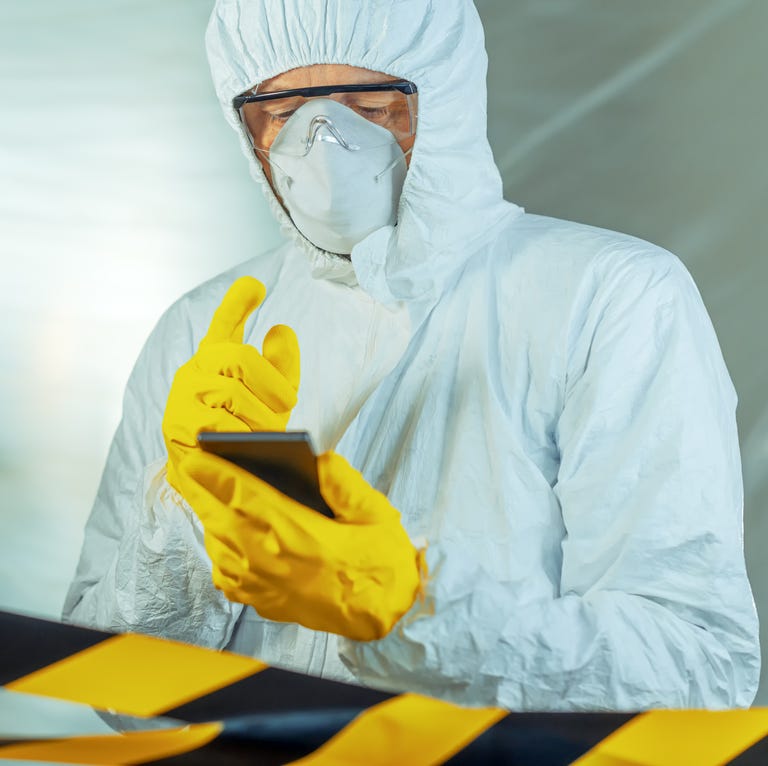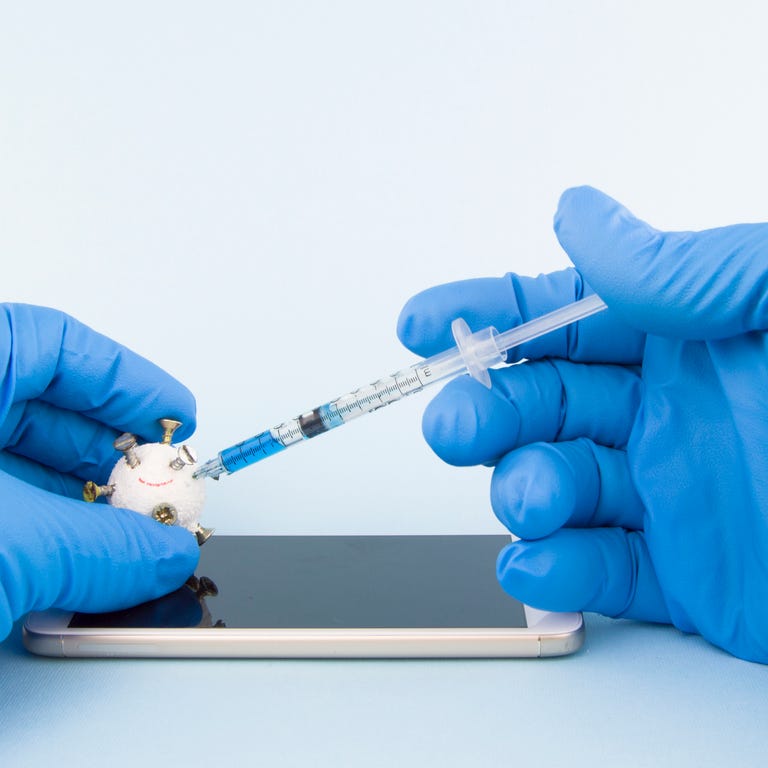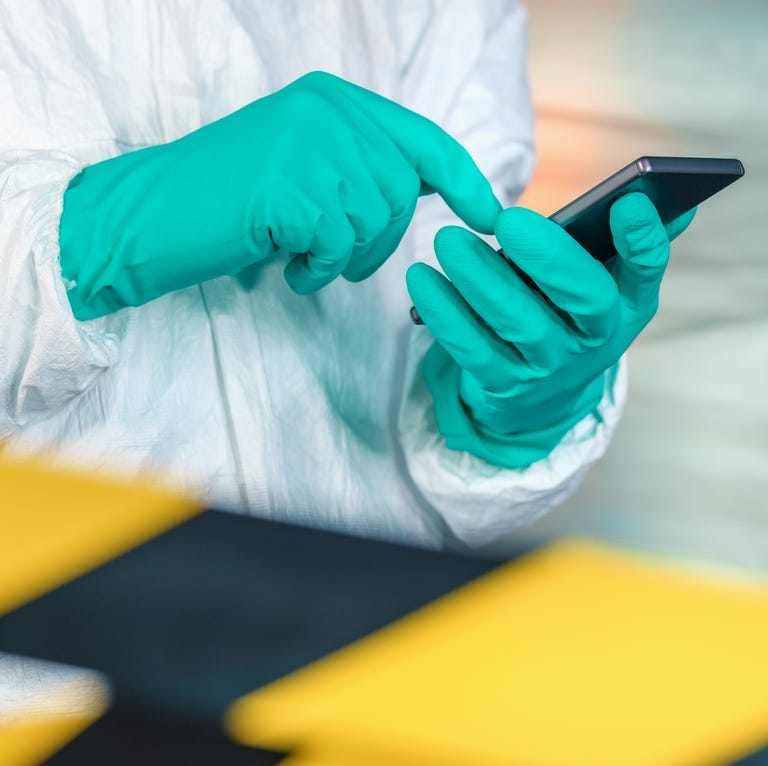Here’s how you can protect yourself.

By Paul Kita
Amidst the spread of COVID-19, health officials have reinforced the importance of washing your hands the correct way.
But the coronavirus can also live on inanimate surfaces like metal, glass, or plastic, for up to nine days, as reported by a 2020 study review review by German researchers.
And what’s an inanimate surface made of metal, glass, and plastic that you pick up frequently during the day and sometimes hold close to your face?

Yeah, your phone.
The researchers of that German study, published in the Journal of Hospital Infection, assessed data from 22 studies on human coronaviruses such as Severe Acute Respiratory Syndrome (SARS) coronavirus, Middle East Respiratory Syndrome (MERS) coronavirus, and endemic human coronaviruses (HCoV).

What they found: “although the viral load of coronaviruses on inanimate surfaces is not known during an outbreak situation it seems plausible to reduce the viral load on surfaces by disinfection, especially of frequently touched surfaces in the immediate patient.”
The study went on to report that a good strategy for surface disinfection is with a solution that contains 0.1% sodium hypochlorite or 62 to 71% ethanol. Either of these “significantly reduces coronavirus infectivity on surfaces within 1 min exposure time. We expect a similar effect against the SARS-CoV-2.” (SARS-CoV-2 is the virus that causes COVID-19, according to the CDC.)
In other words, just as it’s a smart idea to wash your hands frequently, and it may be important to disinfect metal, glass, and plastic surfaces frequently.

But does that include your phone?
Yes, says Charles Gerba, Ph.D., professor of microbiology and immunology at The University of Arizona.
“You do not have to sneeze on a cell phone to transmit disease-causing organisms,” Gerba says. “What we found out in studying virus movement on surfaces in office buildings is that you touch a surface with a virus on it and then you place it on your cell phone.” (A door handle, for example.)
“You then go home or to another location and you touch your phone again and, says, touch a table moving it to another location—great way to spread viruses around an office.”
Günter Kampf, M.D., an associated professor of hygiene and environmental medicine at the University of Greifswald, is the lead researcher of the German paper.
In response to using cleaning products that contain the amounts of agents listed in the study, Geifswald said: “Check with the manufacturer. First, it should be effective against coronavirus (or commonly used other enveloped viruses used for disinfectant testing). Second, not all disinfectants are compatible with the material of the smartphone surface.”
Gerba recommends an “alcohol wipe or a microfiber cloth.”
“I would do it every time I have been out in public,” he says.

